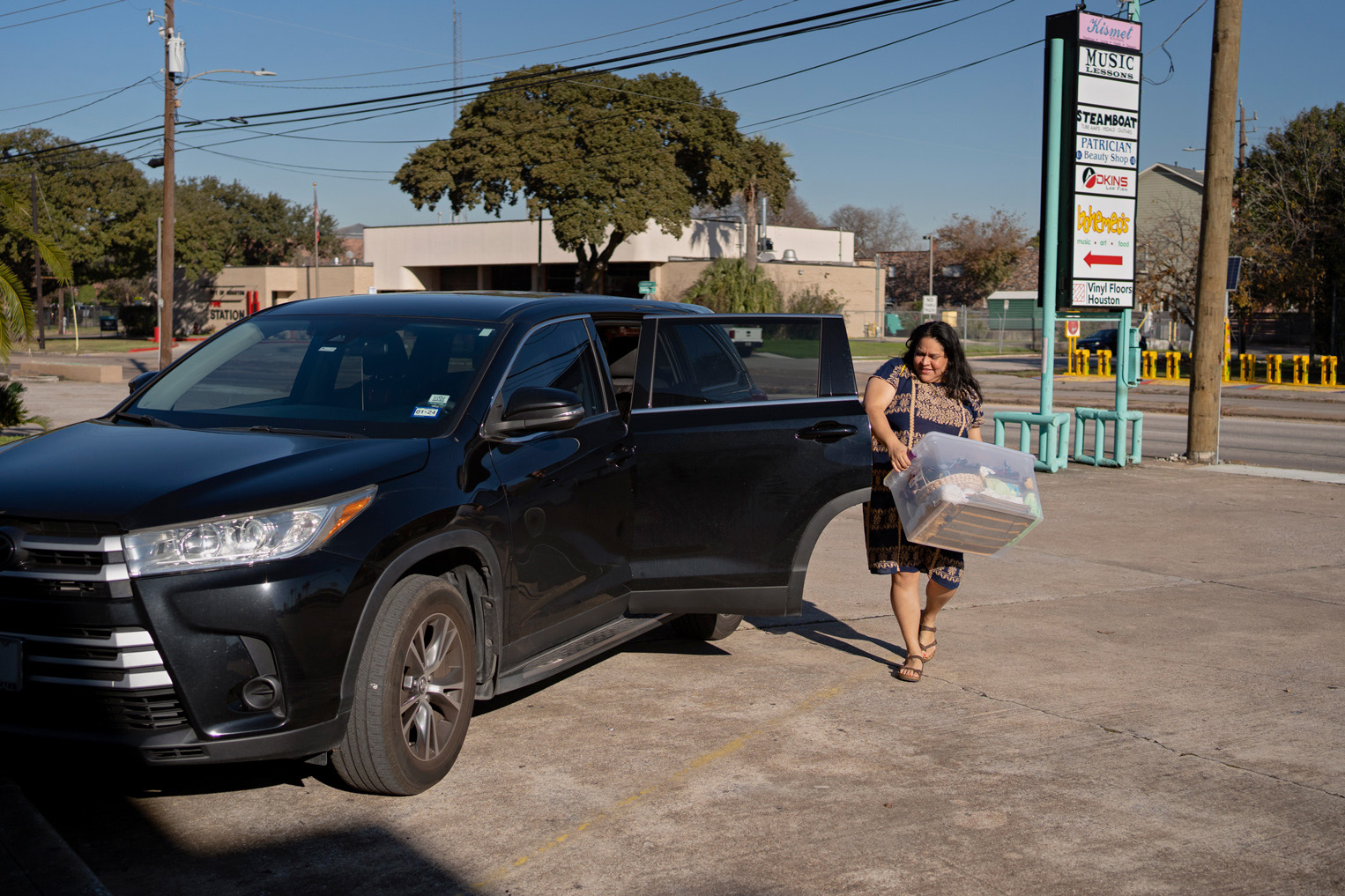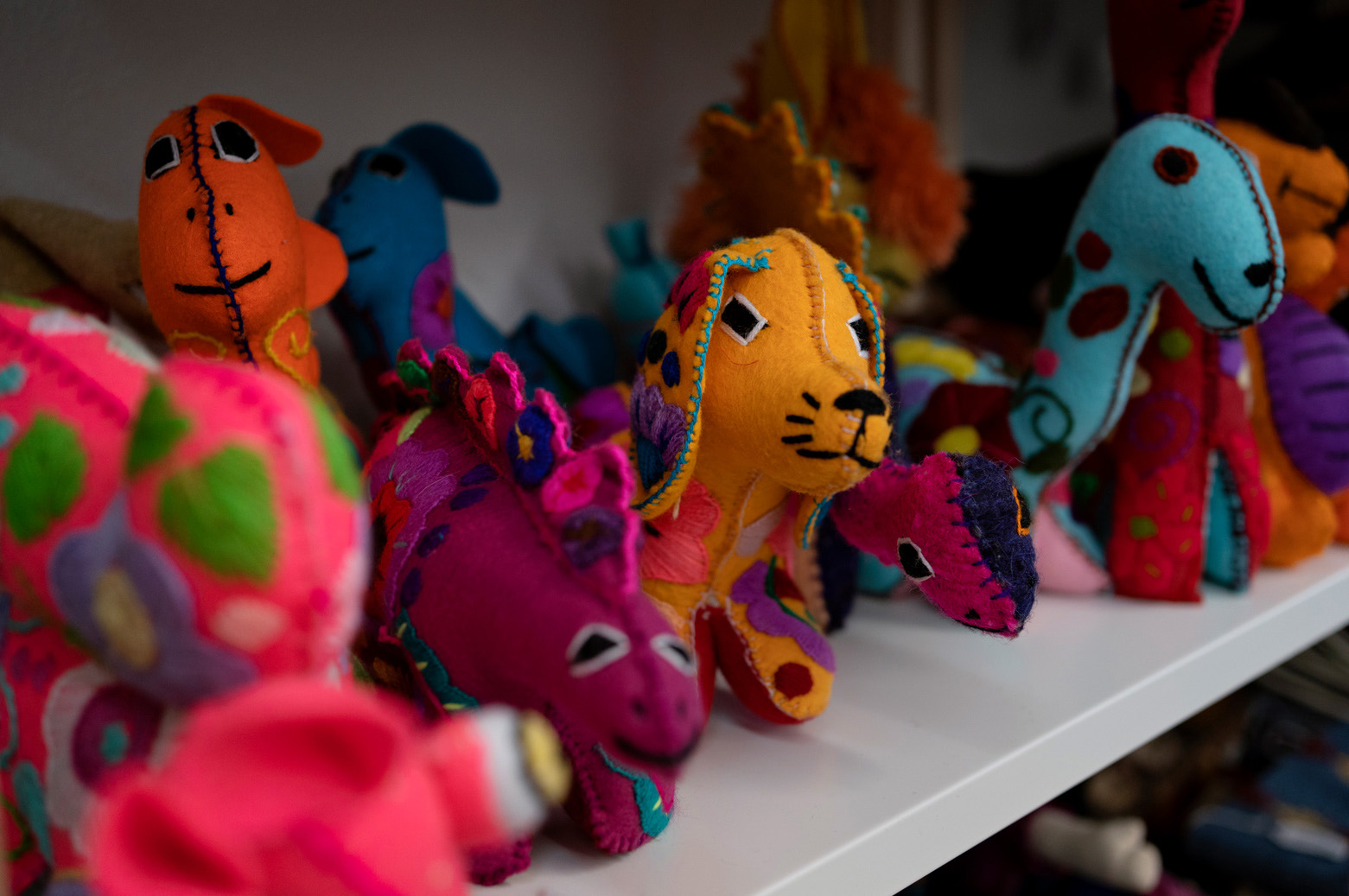|
Getting your Trinity Audio player ready...
|
Cindy Laguna examines a rack filled with traditional Mexican garments. She extends her arms and sections off the colorful clothes by family: familia Salvador Martinez from Hueyapan, Puebla, familia Aguilar from San Pedro Mártir, Oaxaca, familia Romero Roque from San Gabriel Chilac, Puebla.
Whereas a regular shopper visiting her pop-up store, Todo Fresh, sees a colorful huipil, rebozo or a mañanita or quexquémitl, Laguna sees a family and the wealth of generational knowledge that would be lost if these handmade goods were replaced with mass-produced items.
“This is un telar de cintura,” Laguna said.
She holds up a huipil, a tunic dress made with fabric that was handmade using a pre-Hispanic tool that wraps around one’s waist, or cintura.
“Just to get it this tight is so much work,” she said, pointing to the tightness of the fabric’s weave pattern. “People have no clue!”
Just like the intricate threading in these traditional garments, Latinas in Houston are weaving a network of businesses in which their culture takes center stage, offering a cultural education component to consumers and a space for other vendors to grow.
“Women have become more assertive and outspoken and more present, and that’s so important,” said Laura Murillo, president and CEO of the Houston Hispanic Chamber of Commerce. “We don’t wait to be invited. If you wait to be invited, that invitation might not come.”
In Houston, roughly 12,600 businesses are Latino-owned, employing 110,413, according to the Greater Houston Partnership.
In Texas, there were approximately 59,000 Latino-owned employer businesses – one that employs at least one person in addition to the owner – at the onset of the COVID-19 pandemic in 2020, according to a report released in September by the Latino Policy and Politics Institute at the University of California, Los Angeles. This accounts for about 13 percent of all employer businesses across the state, according to the report.
About 25 percent of all Latino-owned businesses in Texas are owned by Latinas, the institute found. That’s fewer than those owned by Black women, but on par with businesses owned by white women.
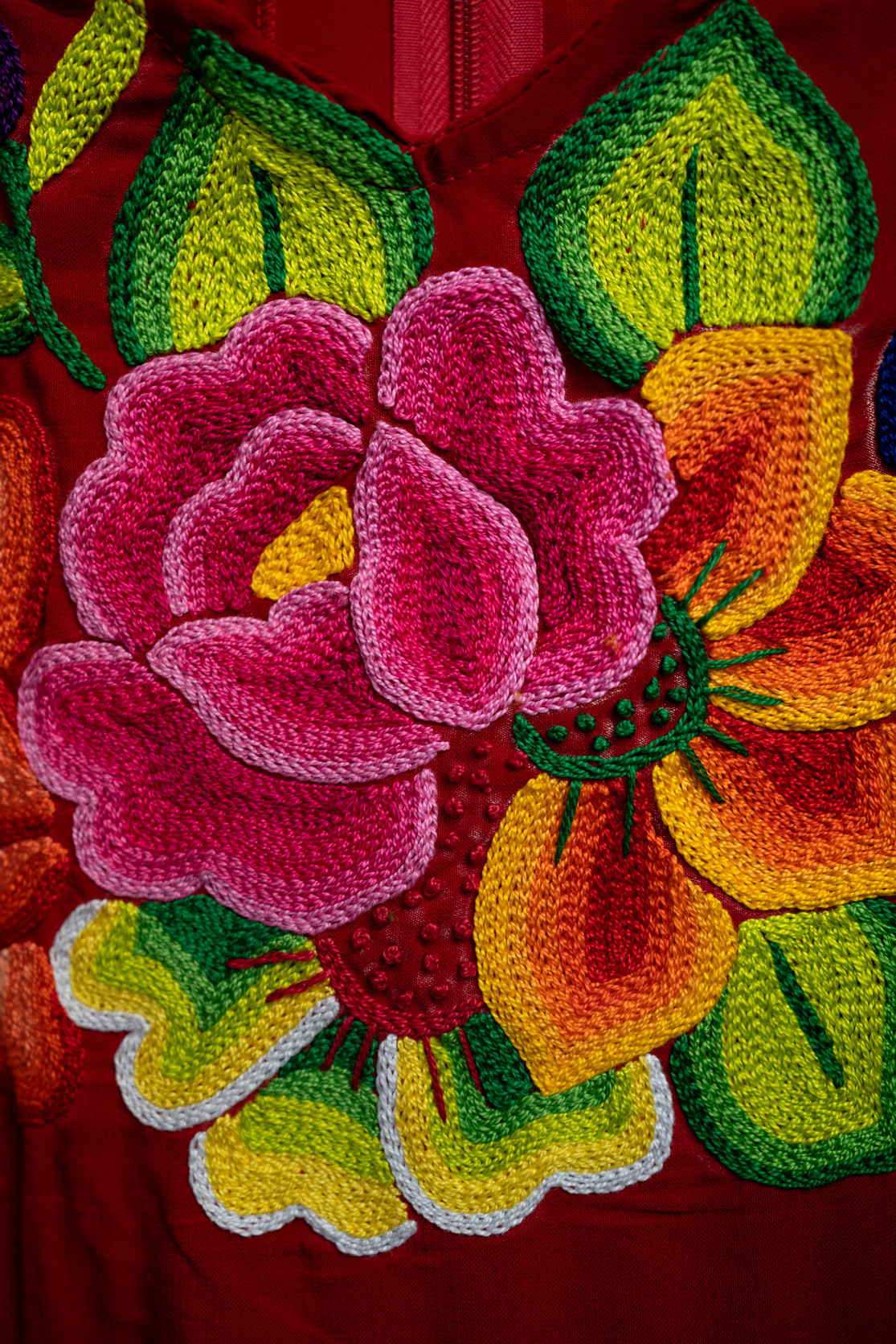
Despite the data on Latino-owned businesses, it's still unclear how many of these are owned by women.
With this in mind, Murillo said the chamber has worked to increase visibility of women entrepreneurs in its programming and offerings, such as training, TV appearances and mentorship programs.
Visibility and collaboration among women entrepreneurs is key, she said, to offer a more realistic and helpful outlook. It opens avenues to Latinas who have experienced opening a business rather than relying on friends and acquaintances.
“I think that’s a big game changer,” Murillo said. “Instead we’re going to people who’ve done it right, people who succeeded at it in that sector.”
Abriendo espacios
At Todo Fresh, Laguna’s goal is to provide a space where she can connect artisans with a new market, while also educating consumers about the cultural importance of products they buy and the importance of paying fair prices.
Over the last eight years, she created her own network of about 35 vendors throughout Mexico, including individuals, families and collectives, with about 90 percent of the artisans being women, she said.
“I’m going to call it a bad business,” Laguna said. “We don’t make a killer profit. I don’t make money for me, it all goes back to the families.”
Her ultimate goal is to directly connect the artisan with the consumer. While many run their businesses in Mexico, the idea is to empower them to grow their U.S. presence.
Like many Latinas with small business ventures, Laguna, 40, still holds a full-time job. In her spare time, she attends events and pop-up markets, and the shop has also found a semi-permanent spot at Kismet Boutique, another small business located in the East Downtown, also owned by a Latina.
Not far down the road, Las Perras Café owner, Andrea Arana, 33, prepares bottled specialty coffee to deliver to area small businesses.
Arana has a degree and built a career in hospitality. And while she moved fairly quickly up the corporate ladder in that field, she felt restricted on presenting her true self and her culture in a corporate setting.
“I’ve always wanted to start a company that would allow me to be very forthcoming with my values and to build that into my brand,” Arana said.
After losing her job during the pandemic, Arana decided to spend time learning more about coffee and building a business plan.
Considering the risks of opening a brick-and-mortar coffee shop during the pandemic, Arana’s first ambitious idea was to do flavored cold-brew coffee and distribute straight to grocery stores. She then worried about starting too big and losing control of the freedoms she sought.
“I slowly learned that that was too big of a leap to take,” Arana said. “It's just a lot less control you have over the final product.”
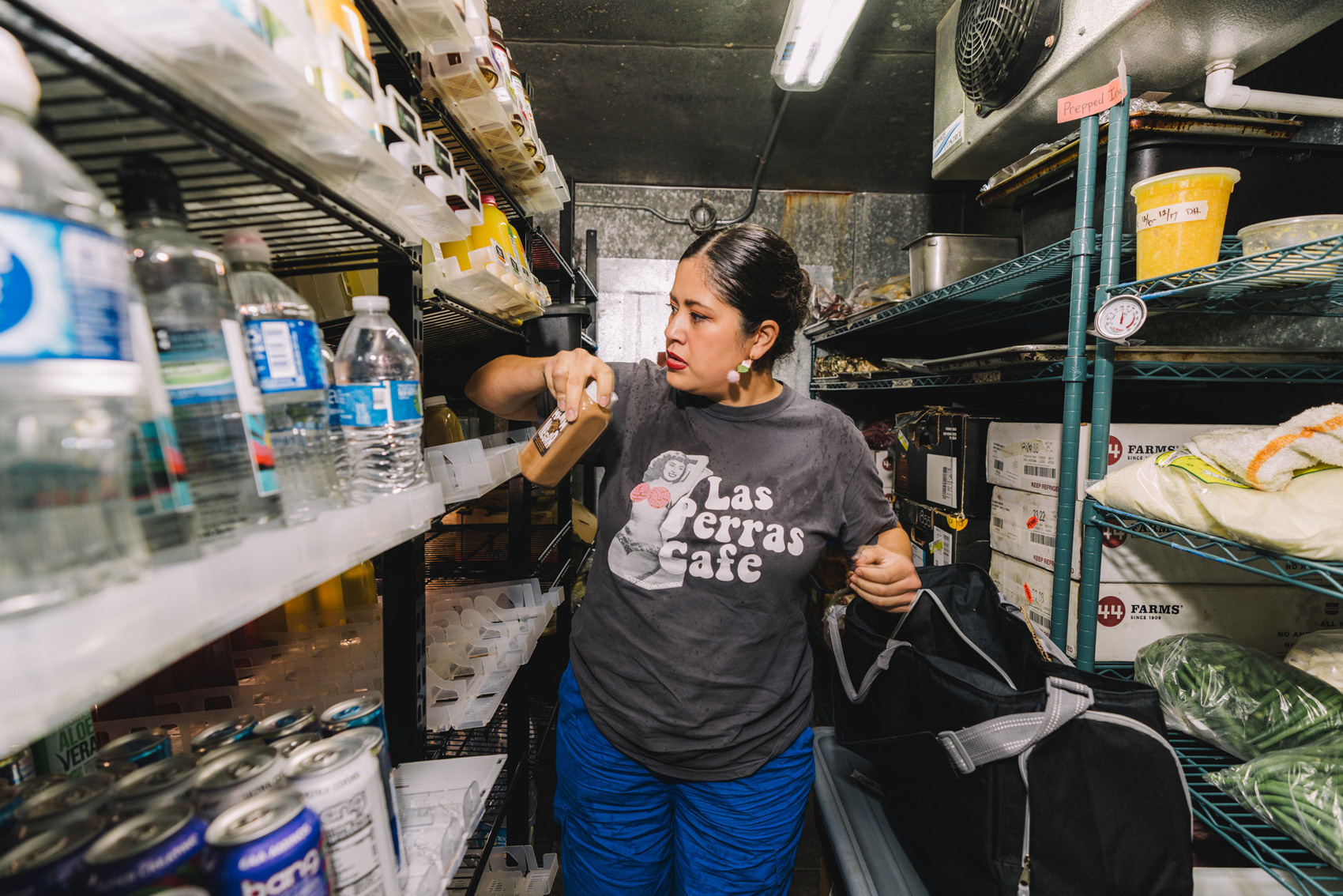
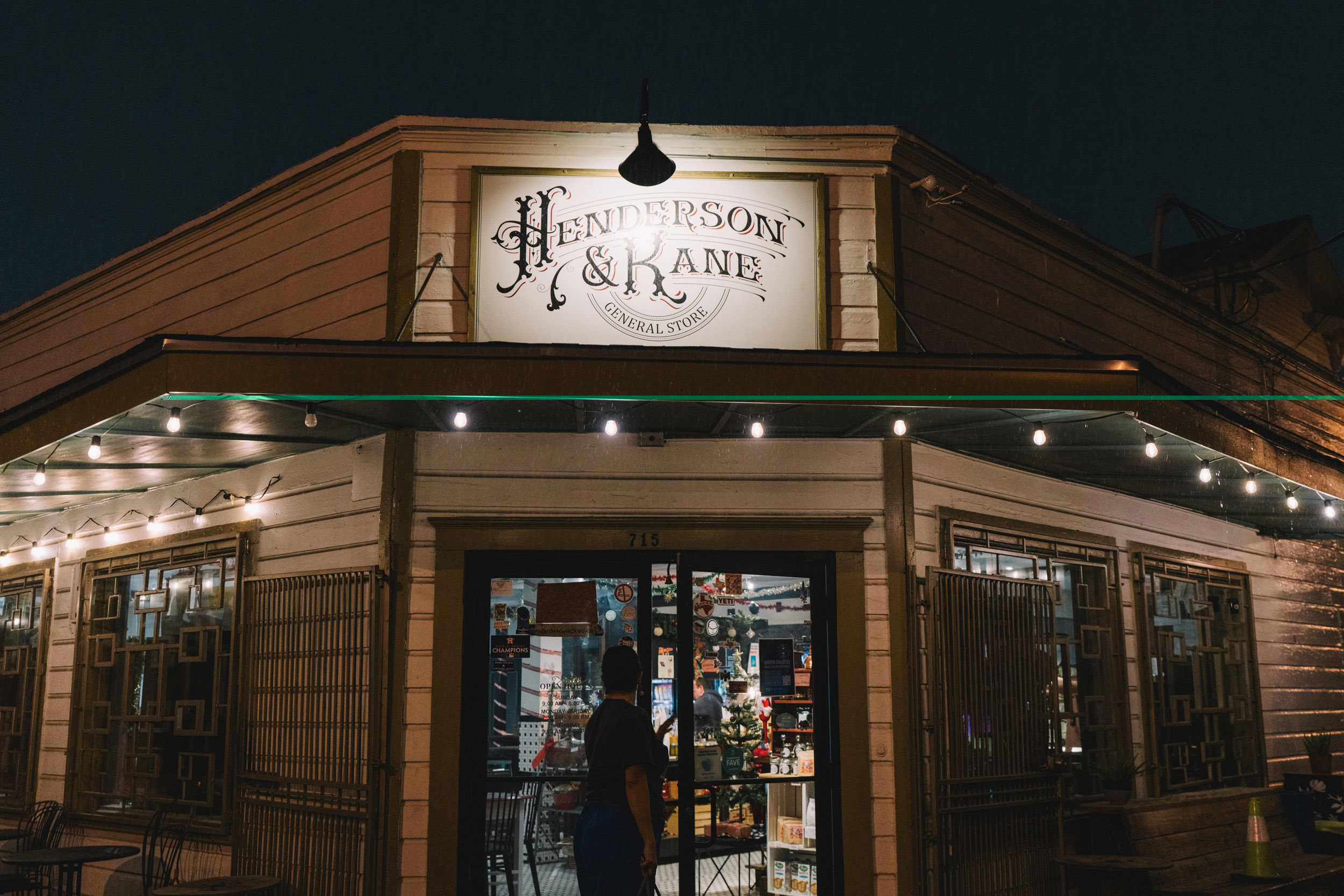
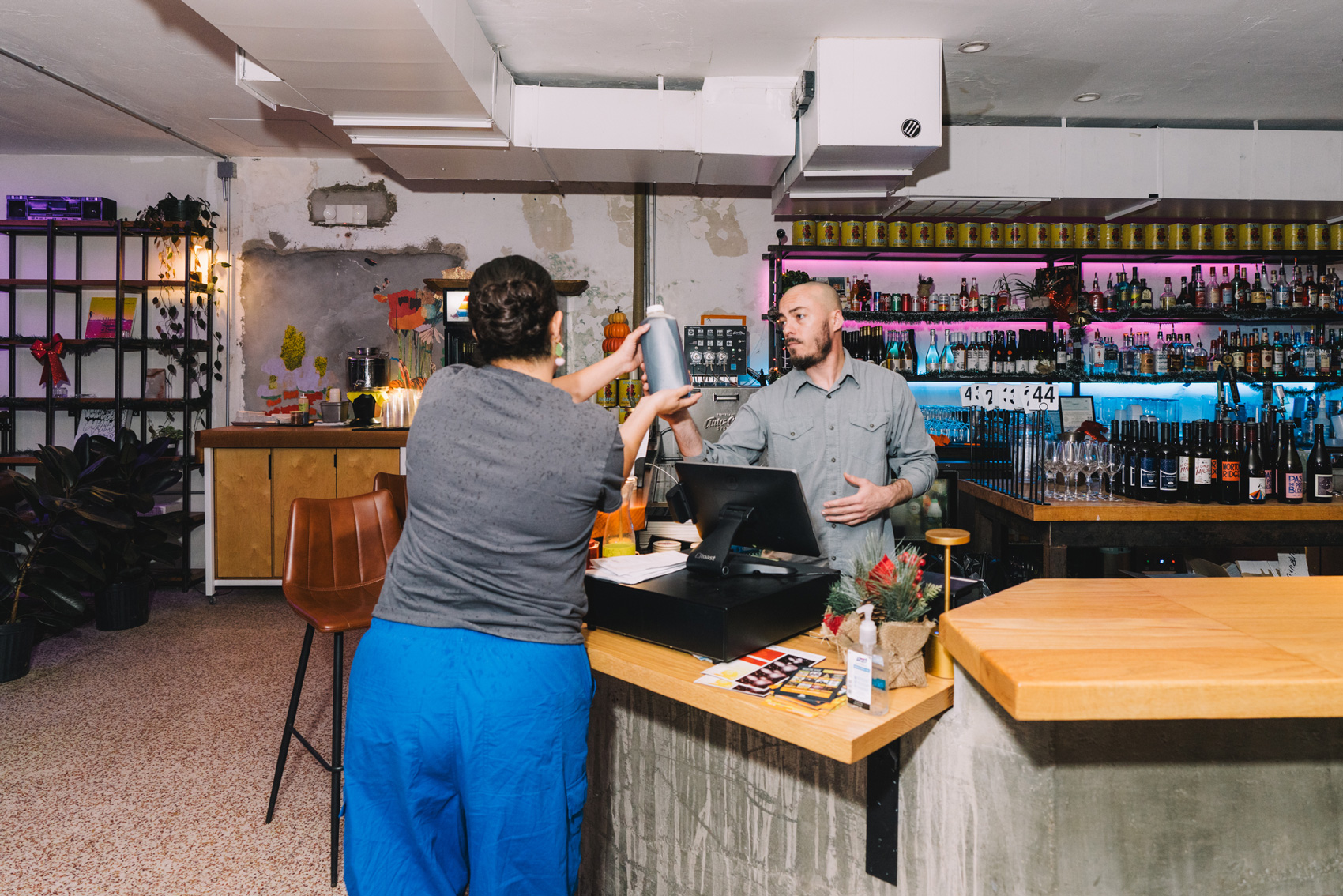
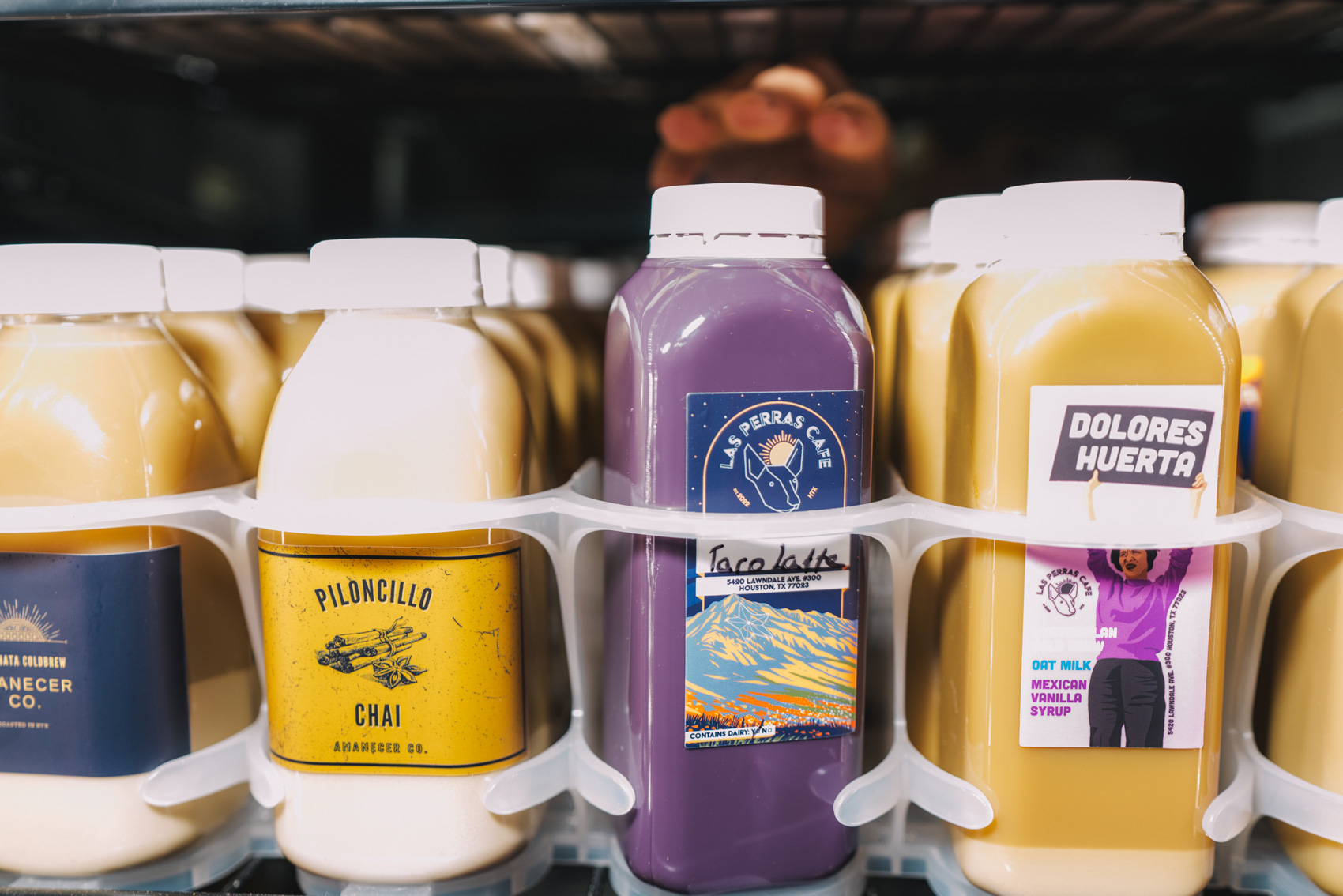
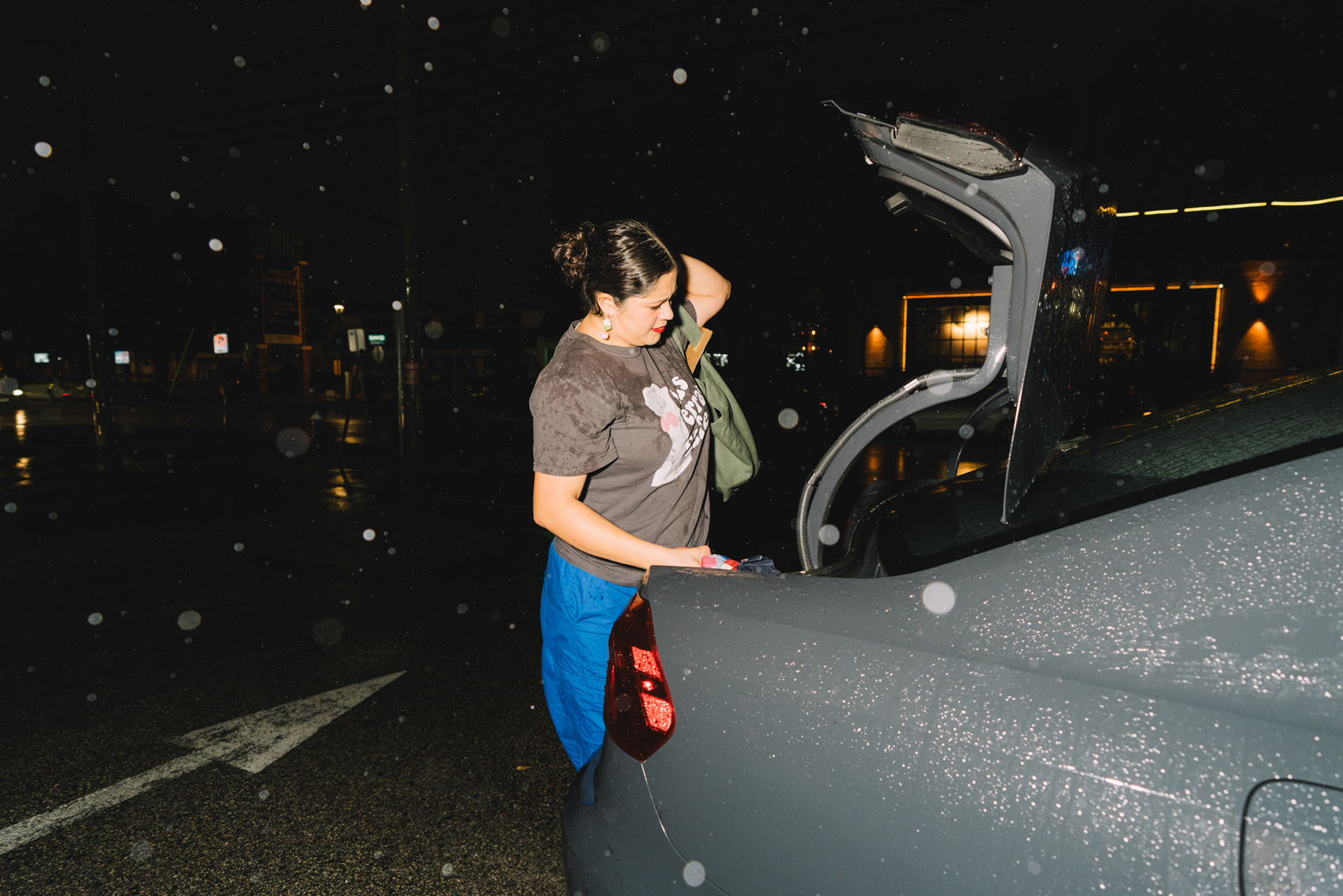
With product labels featuring activists Dolores Huerta and Angela Davis, Arana wanted her brand to offer a sense of empowerment for women of color and an educational opportunity for those unfamiliar with these figures.
She found guidance and a safe space for her brand and products through several local business owners, starting with the Sixth-Ward general store and barbecue spot Hendersen & Kane, co-owned by another Latina who understood the need, Veronica Hernandez Avila, and her husband, John Avila.
“There’s a reason why you see so many minority-owned businesses and Latina-owned businesses,” Hernandez Avila, 41, said. “It’s because we are tired of hitting the ceiling at other places. You reach a point where you recognize that the only way to get out of that pattern is to do your own thing.”
As an architect, Hernandez Avila knows about the ceiling all too well. Her career working at an international firm was promising, she said, but she said she was “well recognized, but not promoted.”
“I could never commit more to the company because I felt like they didn’t invest in me,” Hernandez Avila said. “And while they rewarded me for the work that I did, I just felt like they didn’t really want more of me.”
At Henderson & Kane, the couple found a way to not only highlight their culture and love of food through barbecue, but they also created a space to highlight other local small businesses.
In the summer of 2018, the general store and barbecue spot opened with about 20 products from local vendors among their products. Then, only a few years into their endeavor, the pandemic pushed many to sell goods and start small businesses like Arana’s.
The Henderson & Kane inventory grew to include between 40 to 50 local brands – from totopos, or corn chips, and tamales from the local restaurant Cochinita and Co., to salsas from other area chefs, family-recipe curries, limonadas, jams and more.
“It happens naturally, not intentionally, that I support these businesses because there's just so many of them,” she said. “You can't not support them.”
While not all of these businesses are Latina-owned, the majority of them are minority-owned and many of them female-owned, Hernandez Avila said.
Starting and growing a business is not easy for anyone, Murillo with the Houston Hispanic Chamber of Commerce said, but for some groups who have been traditionally disenfranchised, it can be harder. Building a support network is especially important for these groups, including Latinas.
“We must understand that there’s a big benefit of you helping another entrepreneur,” Murillo said. “If you help them get business, they’ll turn the favor around as well.”
In the case of Hernandez Avila, she said one of the many lessons she’s learned is that she was not presenting her authentic self in her corporate career, making it hard for people to buy into who she really is.
“As a Latina, I feel like we're commonly taught and raised to do two things: One, to never bring our personal life into business. And two, to not talk good about ourselves,” Hernandez Avila said.
In the general store, she presents her true self through the food and products she sells.
“I think that's why you see a lot of Latina-owned businesses, because we have to make a path for ourselves,” she said. “It gets to the point where we have to talk about something else, whether that's the thing that we make, or the thing that we sell, which is not us.”
Hola! My name is Danya Pérez, one of Abdelraoufsinno’s diverse communities reporters. I cover Latino/Hispanic communities here, including those who are mixed race or mixed status. ¡También soy México-Americana y hablo español! ¿Qué notas te gustaría leer? What topics or stories would you like to see me cover? Email me your ideas at [email protected]


